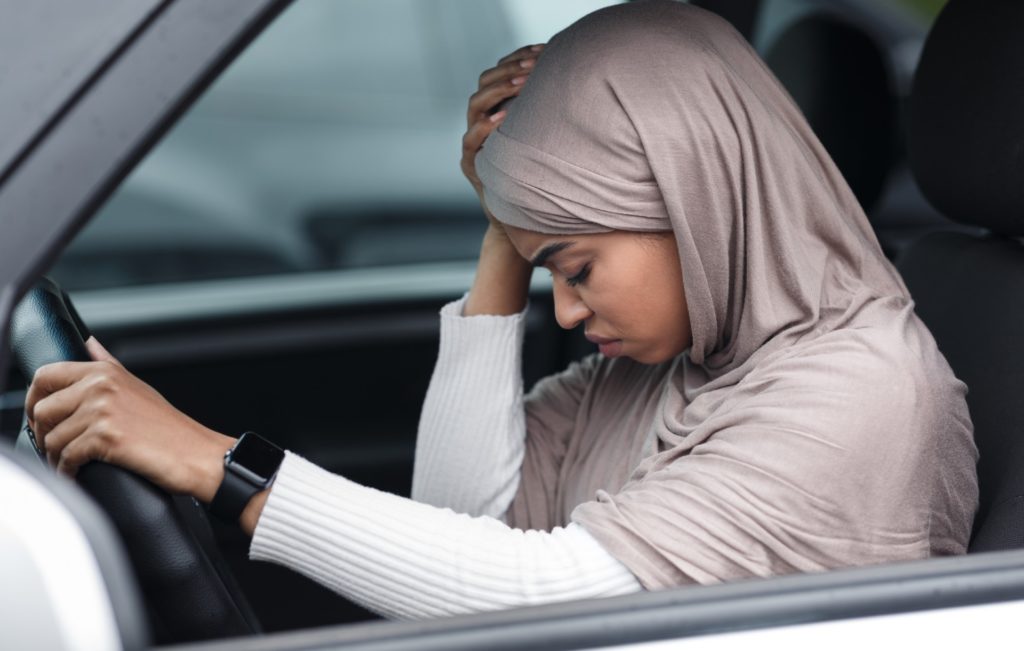
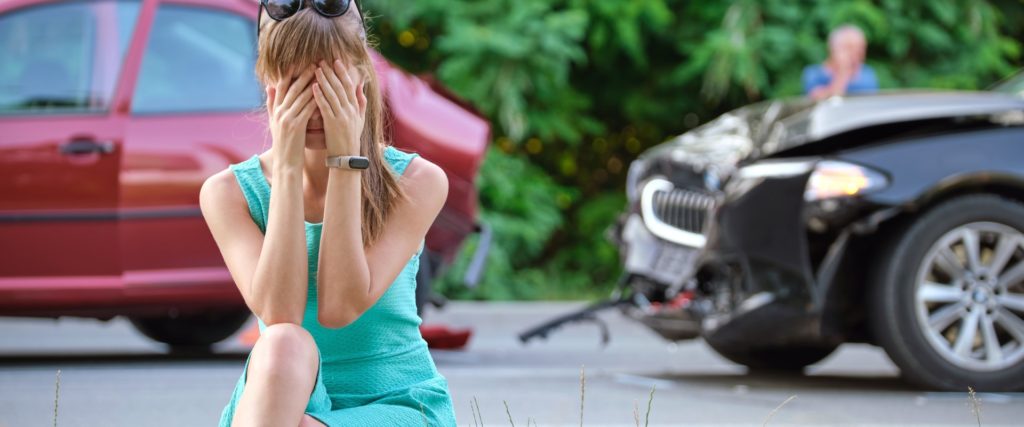
Have you been in car accidents and are now struggling with PTSD?
You are not alone. Many people who experience traumatic road traffic accidents go on to develop PTSD. Common symptoms of PTSD include nightmares, flashbacks, anxiety, depression, and feeling numb or disconnected from others.
If you struggle with PTSD after a car traumatic incident, please seek a medical professional for positive outcomes. Many resources are available to support you on your journey to the recovery process. We at Wattel & York Attorneys at Law, your professional car accident lawyer, want to help you get the treatment you deserve and get your life back on track. We have helped many people in your situation and can help you too.
If you have been in car accidents and are struggling with PTSD, there are treatments available that can help. Talk to your doctor about your clinical observations, symptoms, and whether you might benefit from therapy, medication, or both. Finding support groups for people with PTSD. These groups can provide a space to share your experiences and connect with those who understand what you are going through. A safe word from family members greatly helps lower the risk factors of PTSD after a car or motor vehicle accident, like mental anguish, anxiety disorder, and emotional distress from the said traumatic accident. PTSD diagnosis includes intrusive memories or intrusive thoughts. Motor vehicle collision is the leading cause of serious injuries. Many victims or MVA survivors suffer from physical harm, physical ailments, severe emotional toll, and emotional numbing as a depressive disorder.
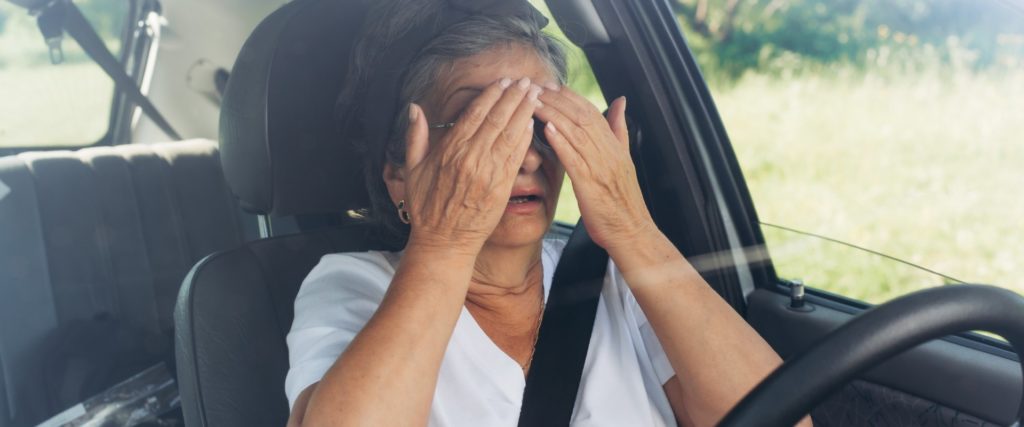
What is PTSD?
PTSD stands for post-traumatic stress disorder. American Psychiatric Association recognizes PTSD as an anxiety disorder. It happens after someone experiences a traumatic stress disorder (PTSD)event. People with PSTD may feel in danger even when they are not.
What causes PSTD?
PSTD is caused by experiencing or witnessing a traumatic event that triggers intrusive memories. This can include war, violence, car accident, sexual assault, or natural disasters. PSTD can also be caused by childhood trauma or abuse.

What are the symptoms of PSTD?
Symptoms of PSTD can vary from person to person. Emotional symptoms include flashbacks, nightmares, and severe anxiety. Many car accident victims with PSTD may feel like they are in danger even when they are not. Other symptoms can include trouble sleeping, feeling numb or disconnected from others, and avoiding things that remind them of the trauma that is a leading cause of mental disorders.
How is PSTD treated?
Treatment for car accident survivors with PSTD typically includes therapy and medication. Cognitive processing therapy can help people with PSTD recover from the trauma and learn healthy coping skills. Medication can help manage symptoms of anxiety and depression. Treatment can also include support groups and eye movement desensitization and reprocessing (EMDR) therapy.
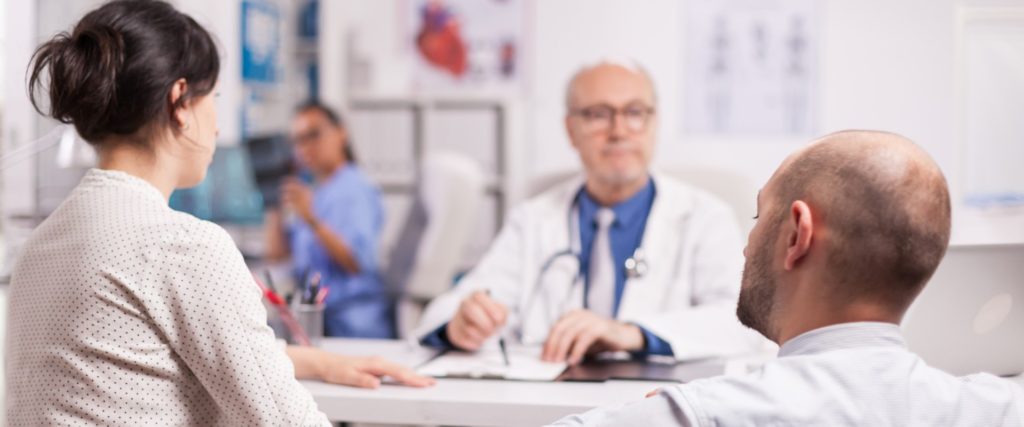
Therapy and Treating PTSD
Many different types of therapy can be helpful for PTSD treatment. Some people find relief from symptoms by attending weekly therapy sessions, while others need more intensive treatment. The most important thing is finding a therapist whom you could trust, comfortable with and who has experience treating post-traumatic stress disorder.
Cognitive-behavioral therapy (CBT) is one of the most effective therapy for post-traumatic stress disorder. Cognitive processing therapy helps you to change the negative thoughts and beliefs that are causing your symptoms. Exposure therapy, another type of CBT, can be very helpful. This therapy involves your gradual exposure to the things that trigger your PTSD symptoms. As you become more comfortable with these triggers, your symptoms will lessen. Medication can also be an important part of treatment for PTSD.
Antidepressants and anti-anxiety medications help reduce the symptoms of PTSD. If you happen to have trouble in sleeping, your doctor may prescribe a sleep medication. Taking medications as prescribed and talking to your doctor about any concerns you have is crucial. PTSD can be a very debilitating condition, but there are many effective treatments available. With the help of a qualified therapist, you can overcome your symptoms and live a full and happy life.
Supportive Therapy of PTSD and Depression
There is a wide range of effective treatments available for posttraumatic stress disorder (PTSD) and depression. The most common and proven to be effective are cognitive-behavioral therapies, which help people understand and change their thoughts and behaviors.
Other types of therapy that have shown to be helpful in treating post-traumatic stress disorder and depression include Eye Movement Desensitization and Reprocessing (EMDR), exposure therapy, and cognitive restructuring. Some people also find relief from complementary alternative therapy activities such as yoga, meditation, and acupuncture.
No single treatment is right for everyone, so it is important to work with a therapist to find the treatment that is best suited for you.
Group Therapy of PTSD
PTSD can be effectively treated with group therapy, which allows individuals to share their experiences with others who have been through similar trauma. This type of therapy can help people feel less isolated and more understood. It can also provide support and encouragement to continue working through the healing process. Group therapy for PTSD typically lasts for 10-12 weeks and is conducted by a licensed therapist. During this therapy, people with PTSD will share their experiences and work on coping strategies together. The therapist will also provide education about PTSD and its treatment. It can be an effective treatment for PTSD because it allows people to:
– Share their experiences with others who have been through similar trauma
– Feel less isolated and more understood
– Receive support and encouragement to continue working through the healing process
If you are interested in group therapy for PTSD, please contact a licensed therapist in your area.
Prolonged Exposure Therapy of PTSD
Prolonged exposure therapy (PE) is a specific type of cognitive-behavioral therapy that was developed to treat posttraumatic stress disorder (PTSD). PE involves helping the individual repeatedly confront their trauma memories and reminders in a safe and controlled environment. The goal is to help the individual eventually process these memories and move on from the traumatic event. This therapy behavior changes PTSD after suffering serious injury. You can treat PTSD with the help of a special therapist. Therapist can help you treat depression.
PE usually consists of 10-12 sessions that are conducted over a period of 3-4 months. The first few sessions typically involve education about PTSD and its treatment. The therapist will then help the individual identify their personal trauma memories and reminders. This is followed by a series of exposure exercises, in which the individual is gradually exposed to their trauma memories and reminders. The therapist will provide support and guidance throughout the exposure process.
PE is an effective treatment for PTSD, with research showing that it can significantly reduce symptoms of the disorder. It is important to note that PE can be a difficult and emotionally challenging process. However, the rewards of PE are often worth the effort, as it can lead to a marked improvement in quality of life.

What is the outlook for someone with PSTD?
The outlook for someone with PSTD depends on many factors. With treatment, most people with PSTD can improve. However, some people may have long-term symptoms. Treatment can help people manage their symptoms and live a healthy and fulfilling life.
Symptoms of PTSD after car accident
After a car crash or auto accident, it is common for people to experience symptoms of posttraumatic stress disorder (PTSD). Risk factors can include flashbacks of the accident, nightmares, anxiety, difficulty sleeping, and depression. Some people may also experience physical injuries and symptoms such as headaches and body pain. It is very important to seek professional help if you are experiencing the aforementioned common symptoms. PTSD can be a very debilitating condition, but with treatment, people can recover and live normal, productive lives.
Involved in a car accident? You should do these few things to help reduce your risk of developing PTSD. First, it is important to get medical attention immediately, even if you don’t think you are seriously injured. This will help ensure that any injuries are treated and that you have a record of the accident. You are talking to a counselor or therapist as soon as possible after the accident is also critical. Talking about your experiences and feelings can help you process them and start to heal. Finally, it is crucial to take care of yourself physically and emotionally. Eat healthy meals, exercise, get plenty of rest, and do things that make you happy. These self-care activities will help you reduce stress and promote healing.
If you or anyone close to you recently got into a car accident or a car wreck and is developing PTSD symptoms, it is important to seek professional help. Many treatment options can help people recover from this condition and live normal, productive lives.

Can a car accident give you PTSD
Car accidents and collisions are the most common causes of posttraumatic stress disorder (PTSD). It is estimated that up to 10% of people in serious car accident will develop PTSD. The condition can occur in people of all ages and significantly impact their quality of life. PTSD treatment can include medication, cognitive behavior therapy, and support groups. Car accidents often result in injuries that have the potential to cause permanent disability, chronic pain, job loss (temporary or permanent), severe financial difficulties, and an added burden of trauma due to the death of loved ones involved.
How to deal with PTSD from a car accident
If you’re struggling with PTSD after a car accident, you’re not alone. Many people who go through traumatic events like car accidents can develop PTSD. But there are treatments that can help.
Getting professional help is the most important things you can do. Consult your doctor or a mental health professional about what you’re going through. They can help you understand your symptoms and develop a treatment plan.
There are also many self-help groups for people with PTSD. These groups can provide support and understanding from others who have been through similar experiences.
Getting help is the first step to managing your PTSD. But there are also things that are helpful in managing your symptoms on your own.
Here are some tips:
1. Avoid anything that triggers your PTSD symptoms.
2. Get regular exercise and eat a healthy diet. These things can help reduce stress and improve your overall mood.
3. Connect with others who understand what you’re going through. This could be friends, family, or people in a support group.
4. Practice relaxation techniques like deep breathing or progressive muscle relaxation.
5. Give yourself time to heal. Don’t try to push yourself to move on too quickly. Allow yourself to grieve and process your emotions at your own pace.
PTSD can be a difficult condition to deal with, but you don’t have to go through it alone. There are many resources and people who can help you. With treatment and support, you can start to heal and move on with your life.

How long does PTSD last after car accident
PTSD can last for a long time after a car crash or accident. Sometimes, dealing with the aftermath of an accident could be very hard, and it can be hard to cope with the injuries and the emotional trauma. PTSD can also make it hard to return to your normal life and activities.
Car accident PTSD settlement
If you are the victim of a car crash or accident that resulted in you developing posttraumatic stress disorder (PTSD), you may wonder if you are eligible to receive a settlement. While every case is different, there are some general things that you must prove yourself in order to be successful in seeking compensation for your PTSD.
First, you will need to show that the motor vehicle accidents was the cause of your PTSD. It only means that you just need to have a diagnosis from a mental health professional that confirms that your PTSD is directly related to a highly traumatic event like a car accident. Without this diagnosis, proving that your PTSD is eligible for compensation will be difficult.
Second, you will need to demonstrate that your PTSD has had a negative impact on your life. This can be done by showing how your PTSD has impacted your work, relationships, or overall quality of life. If you can provide evidence that your PTSD has made it difficult for you to live a normal life, you’ll definitely be more likely successful in your claim for compensation.
Third, you will need to show that you have incurred financial losses due to your PTSD. This includes lost wages, medical bills, and therapy costs. If you can provide evidence of these financial losses, it will strengthen your case for receiving a settlement.
If you have been the victim of motor vehicle accidents and have developed PTSD as a result, you may be eligible to receive a settlement. If you can prove that the accident was the cause of your PTSD and that your PTSD has had a negative impact on your life, you may be able to recover compensation for your losses. An experienced and skilled personal and physical injury attorney can help you in gathering the evidence you need to build a strong compensation case.
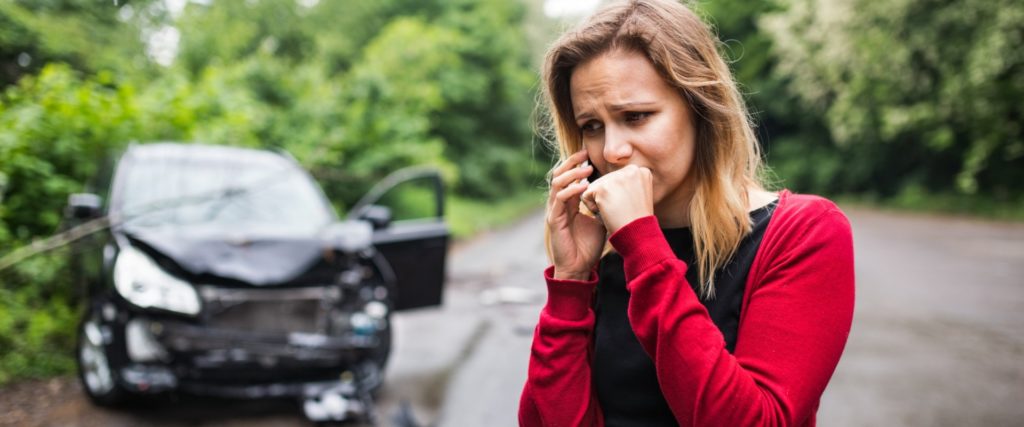
Depression after car accident
Depression is a common and serious problem following motor vehicle accidents. It can significantly impact your ability to recover physically and emotionally from the accident.
If you’re struggling with depression, it’s important to seek help. There are many effective treatments available. Don’t hesitate to reach out for support if you feel depressed after a car accident.
PTSD from car accident years later
If you were car accident survivor years ago and are only beginning to experience PTSD symptoms, it’s important to seek help. Many people think they can “tough it out” or “get over it” on their own, but this is often not the case.
PTSD can profoundly affect your life, making it difficult to function in everyday life. If you are struggling with PTSD, there is help available. Several effective treatments for PTSD include therapy, medication, and support groups.
A mental health professional can help you assess your symptoms and develop a treatment plan.
If you are struggling with PTSD, remember that you are not alone. There is help available. With treatment, you can begin to heal and move on with your life.

How do you know if you have PTSD from a car accident
If you have experienced a car accident, it is normal to feel scared, anxious, or on edge for some time afterward. However, if these feelings don’t fade or worsen over time that it becomes a chronic pain, you may suffer from posttraumatic stress disorder (PTSD). PTSD can develop after any traumatic event, including car accidents. Symptoms of PTSD after a car collision can include flashbacks, nightmares, difficulty of getting a good night’s sleep, and feeling on edge or irritable. Motor vehicle accident PTSD can be treated with therapy and medication. Most people with PTSD can improve and live normal, productive lives with proper treatment. MVA survivors may struggle with intrusive thoughts, and if not treated well, those intrusive thoughts will get worst and difficult to be eliminated.
Do I have PTSD from a car accident
It’s possible that you could suffer from PTSD after a car accident, especially if it was a particularly traumatic experience. A therapist can can help you provide with the tools you need to manage your symptoms and begin to heal.
Can someone get PTSD from a car accident
There’s no clear answer to this question because every situation is different. What works for you or for one person might not work for another. anybody. The best way is to evaluate your options; then, see what makes the most sense for you. Everyone experiences trauma differently and reacts to it in their own way. However, someone can develop PTSD after a car or motor vehicle accident, especially if the accident was particularly traumatizing or if he or she has a family history of mental health issues.
 253.471.1075
253.471.1075